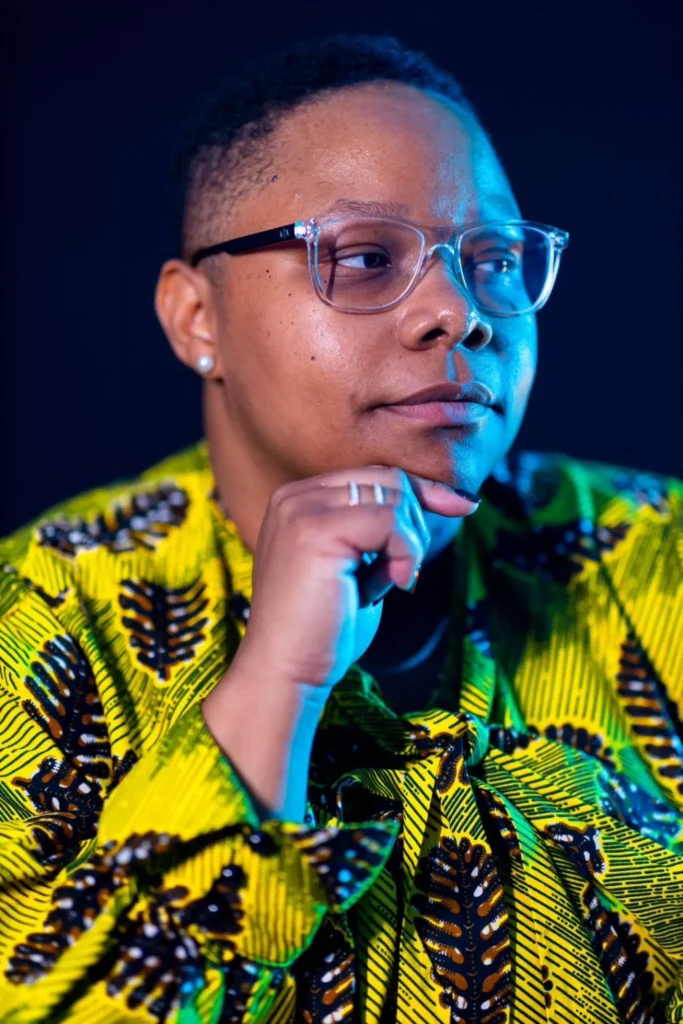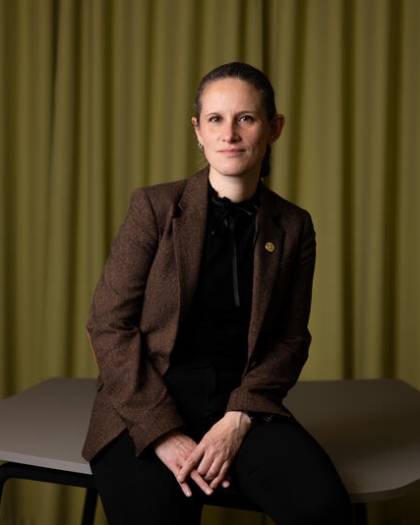We are pleased to introduce three keynotes for Nordic DiGRA 2025!

Professor Kishonna L. Gray
Black Game Studies: From Theorizing a Genre to Developing a Field
Abstract: In this presentation, Dr. Gray will engage the theories, concepts, and frameworks of Black Game Studies. Drawing from over two decades of scholarship around race and intersectional identity, this work focuses on tensions in designing Blackness to the transmediated and techno practices of the Black community in both digital and physical spaces.
Bio: Dr. Kishonna L. Gray is a Professor of Racial Justice and Technology at the University of Michigan, directing the Mellon-funded Intersectional Tech Lab. A Faculty Associate at Harvard’s Berkman-Klein Center, Dr. Gray’s work explores race, gender, and technology, emphasizing the role of marginalized communities in digital spaces. She is the author of Intersectional Tech and Race, Gender, & Deviance in Xbox Live and is frequently featured in major media. Her accolades include the 2023 Black in Gaming Educator of the Year Award.

Professor Kristine Jørgensen
Part of the problem, or part of the solution? On why game studies need masculinity studies now
Abstract: This keynote examines the treatment of masculinity in game studies, spotlighting how gaming men experience and navigate gendered expectations. Traditionally a male-dominated, hypermasculine arena, videogame culture has largely marginalized women, prompting research to focus on women’s experiences with exclusion and harassment. However, this approach has often overlooked men’s own gendered experiences, treating them as a “genderless” demographic and failing to explore what it means to be both a man and a gamer.
The keynote will critique terms like “hegemonic masculinity” and “toxic masculinity” in gaming, suggesting these concepts don’t fully capture the complex ways men express and negotiate multiple masculinities within gaming culture. Drawing on Raewynn Connell’s (2005) theories, the speaker encourages a nuanced understanding of “gamer masculinities” and advocates for addressing problematic gendered practices by including men in the conversation around solutions.
Bio: Kristine Jørgensen is professor of media studies and a PI in the Center for Digital Narrative at University of Bergen. She is interested in player-centered perspectives and has studied player experiences with transgressive game content, player interaction with game interfaces, and player experiences of sound in games. She also has an interest in production and industry studies and has in that context researched the Norwegian game industry. She is the author of The Paradox of Transgression in Games (with Torill Elvira Mortensen), Gameworld Interfaces and A Comprehensive Study of Sound in Computer Games: How Audio Affects Player Action, and the co-editor of Transgression in Games and Play (with Faltin Karlsen). She is currently leading the research project Understanding Masculinity in Gaming (2023-2028).

Dr. Velvet Spors
“Is the grass greener out of bounds?”: Exploring the Relationship of People, Nature and Video Games
Abstract: The Amazon forest is shrinking, the polar ice caps are melting and microplastics are now inside us all: We are living through times of ecological upheaval and change, death and decay. While we are trying to figure out how to survive as species, drowning in depression, anxiety and genuine distress seem inevitable. As the natural world seems to slip away from many from us, digital portrayals of nature become more and more prominent—this includes games. By drawing from my research, this talk will explore 1) how people might use games to make sense of their relationship with nature—for better or worse, and 2) how we might approach games as spaces to dream up equitable, caring and joyful futures for all—including non-human life.
Bio: Dr. Velvet Spors (they/them) is a creative technologist and post-doctoral researcher working at the Gamification Group (Research Center of Gameful Realities), based at Tampere University in sunny Finland. Their research centres around Feminist notions of care as a core value to investigate how technology shapes ourselves, and our relations to others, and the wider world beyond. Currently, they are researching the potentials of video games as a mediator for how people feel for, relate to and think about nature.
